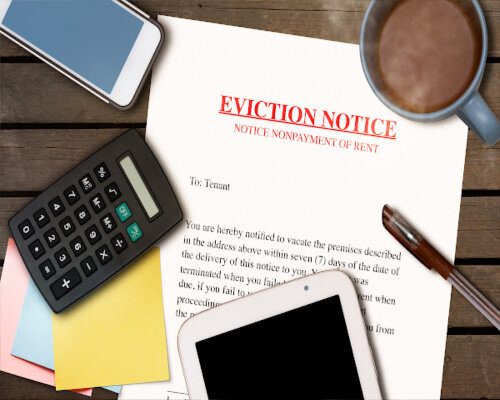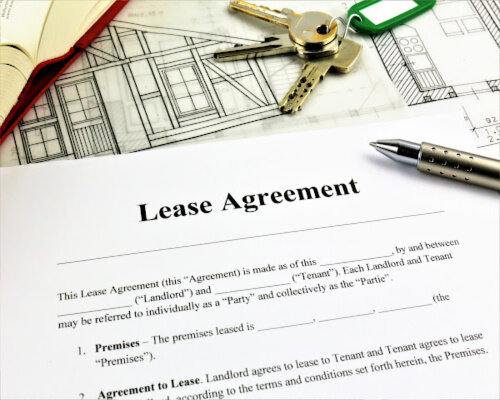Dealing With Difficult Tenants: Legal Obligations For Landlords

As a landlord in Texas, dealing with difficult tenants can be such a challenge. Not only can it cause financial and emotional stress, but it also comes with legal obligations that must be met.
Landlords have a responsibility to provide a safe and habitable living environment for their tenants, which includes maintaining the property and addressing any potential hazards. In addition, landlords must adhere to fair housing laws and cannot discriminate against tenants based on race, religion, gender, or other protected characteristics.
Landlords need to be aware of their legal rights and responsibilities when it comes to challenging tenants because neglecting to do so may have expensive legal repercussions.
Table Of Contents
1. Dealing With Difficult Tenants: Legal Obligations For Landlords
2. Defining Retaliation: What Constitutes As Retaliation?
3. Boundaries For Landlords: What They Cannot Do In Response To Tenant Actions
4. Real-life Examples Of Eviction During The Protection Period
5. Seeking Damages For Illegal Landlord Retaliation: Knowing Your Options
6. Is It Hard To Evict A Tenant In Texas?
7. Do Renters Have Any Rights In Texas?
Navigating Page Sections: Important Information For Tenants
Landlords may find it difficult to deal with problematic tenants, particularly in Texas, where there are particular rules and laws in place to protect all involved. It’s critical for landlords to be aware of their rights and obligations when it comes to handling difficult renters.
One key aspect to consider is the information that is included in each page section of your lease agreement. This includes important details such as the tenant’s responsibilities, rent payment terms, and rules for maintenance and repairs.
It is imperative that all parties carefully review and comprehend these areas to avoid future miscommunications or disputes. Landlords should also spell out exactly what happens if these agreements are broken to keep a professional relationship with their tenants.
By properly navigating through these page sections, landlords can ensure a smoother rental experience for both themselves and their tenants.
Defining Retaliation: What Constitutes As Retaliation?

Navigating the challenges of difficult tenants can be a daunting task for Texas landlords. One aspect that must be carefully considered is retaliation.
Retaliation refers to any action taken by the landlord against a tenant in response to a complaint or exercise of their legal rights. This can include raising the rent, withholding necessary repairs, or even attempting to evict the tenant without proper cause.
To keep the landlord-tenant relationship happy and compatible with the law, it is crucial for landlords to recognize what behaviors can be interpreted as retribution and to steer clear of them at all costs. If this isn’t done, the landlord may face expensive legal fights and reputational harm.
Protected Actions From Landlord Retaliation: Know Your Rights
Knowing your rights as a landlord in relation to behaviors that are shielded from reprisal by the landlord is crucial. Landlords are not allowed to take adverse action against renters who exercise their rights, such as making a complaint or signing up for a tenant union, under the Fair Housing Act.
This includes actions such as increasing rent, decreasing services or amenities, and even terminating a lease agreement. It’s crucial for landlords to be aware of these protections and ensure they are not violating any laws by retaliating against their tenants.
Knowing your rights as a landlord can help prevent possible legal issues and maintain positive relationships with tenants.
Boundaries For Landlords: What They Cannot Do In Response To Tenant Actions

In Texas, managing tenants that are tough to work with can be difficult. Setting limits and being aware of what behaviors are unacceptable are crucial when it comes to a landlord’s response to tenant conduct.
While it may be tempting to retaliate or take matters into your own hands, there are legal limitations on what landlords can do. For example, landlords cannot change locks, shut off utilities, or remove a tenant’s personal belongings without following proper eviction procedures.
Landlords are prohibited from treating tenants unfairly on the basis of their gender, color, religion, or any other protected trait. Landlords are also not allowed to threaten or harass renters in an effort to get them to leave the property.
Landlords can handle challenging circumstances with tenants in a fair and legal manner by being aware of these boundaries and the laws protecting tenants.
When Does The Protection Period Begin? The Timing Of Retaliation Protection
Navigating the challenges of difficult tenants can be a daunting task for Texas landlords. One important aspect that they must be aware of is the timing of retaliation protection.
This refers to the period during which landlords are protected from retaliatory actions by their tenants. In Texas, this protection begins as soon as the tenant makes a complaint or takes legal action against the landlord.
Landlords should be aware that any unfavorable measures they take against the renter during this protection period could have major legal ramifications. Landlords must thus be aware of when this protection period expires and how to resolve challenging circumstances without infringing on the rights of their tenants.
Real-life Examples Of Eviction During The Protection Period

As a landlord in Texas, navigating the challenges of difficult tenants during the protection period can be a daunting task. This is especially true when it comes to evictions, which can be a complex and time-consuming process.
Examining actual cases of eviction during this time can help us better understand the possible challenges that might occur. These illustrations highlight the range of scenarios that landlords could encounter and offer guidance on how to deal with them successfully.
From non-payment of rent to property damage and lease violations, these real-life scenarios serve as valuable learning experiences for landlords dealing with difficult tenants during the protection period. By examining these cases, landlords can gain a better understanding of their rights and responsibilities while navigating the eviction process in Texas.
Fighting Back Against Landlord Retaliation: Options For Tenants
It might be difficult for Texas landlords to deal with uncooperative renters. In addition to the potential for tenant backlash, landlords have to deal with a number of financial and legal challenges.
This might involve everything from missing rent installments to harm to the property to unfounded allegations. Tenants should, therefore, be aware of their rights and their options in the event that they encounter reprisal from their landlord.
One option is to seek legal assistance from a reputable attorney who specializes in landlord-tenant disputes. By understanding their rights and having proper legal representation, tenants can fight back against any unfair actions taken by their landlords.
Seeking Damages For Illegal Landlord Retaliation: Knowing Your Options

Navigating the challenges of difficult tenants can be a daunting task for Texas landlords, especially when faced with illegal landlord retaliation. In such cases, knowing your options for seeking damages is crucial.
Landlords may pursue specific legal proceedings against renters who break their leases or don’t pay their rent, according to Texas law. Retaliating against a tenant for exercising their legal rights—like making a repair request or filing a complaint—is prohibited and can have expensive repercussions for the homeowner.
If found guilty of illegal retaliation, landlords may be held liable for damages, including monetary compensation, punitive damages, and attorney fees. It is important for landlords to fully understand their rights and responsibilities to avoid potential legal troubles when dealing with difficult tenants.
False Complaints And Their Impact On Landlord-tenant Relationships
As a Texas landlord, navigating the challenges of difficult tenants can be a daunting task. One of the most common issues faced by landlords is false complaints from tenants and the impact it can have on the landlord-tenant relationship.
False complaints not only cause unnecessary stress and frustration for landlords, but they also create tension and mistrust between both parties. These complaints can range from minor issues to serious allegations, making it crucial for landlords to handle them carefully and effectively.
Failing to immediately and effectively handle false complaints may result in relationship harm and possibly legal repercussions. To effectively handle these difficulties, landlords must have a firm grasp of their legal obligations, as well as appropriate paperwork and tenant communication.
Additional Measures To Protect Yourself From Landlord Retaliation
In Texas, managing renters who are difficult to work with can be tough and unpleasant for landlords. But it’s crucial to keep in mind that you have legal rights and safeguards as a homeowner.
In addition to taking proactive steps to handle troublesome tenants, there are also additional measures you can take to protect yourself from potential retaliatory actions from them. One key measure is to ensure that all communication with your tenants is documented in writing, including any warnings or notices given.
This can be used as proof in the event of disagreements or retaliation allegations. It is imperative that you adhere to all rental laws and regulations, as noncompliance may expose you to legal action from tenants.
Additionally, consider consulting with a lawyer who specializes in landlord-tenant law for guidance and advice on how to best protect yourself from retaliation. By being well-informed and taking necessary precautions, you can navigate the challenges of difficult tenants while safeguarding your rights as a landlord in Texas.
Is Texas A Tenant-Friendly State?
Texas is known for its booming real estate market and landlord-friendly laws. However, when it comes to dealing with difficult tenants, many landlords may wonder if Texas is truly a tenant-friendly state.
It’s not a straightforward yes or no. Texas does contain laws protecting tenants’ rights, but they are interpreted and applied in a way that largely benefits landlords.
As a landlord in Texas, it is crucial to understand the balance between tenant rights and your own as you navigate the challenges of difficult tenants. With the right knowledge and strategies, you can successfully manage your rental property while still respecting your tenants’ rights.
Is It Hard To Evict A Tenant In Texas?

Navigating the challenges of difficult tenants can be a daunting task for landlords in Texas. One of the biggest concerns that landlords face is the difficulty of evicting a tenant.
In Texas, the eviction process can be complex and time-consuming, requiring strict adherence to state laws and procedures. From providing proper notice to navigating court proceedings, there are many obstacles that landlords must overcome in order to evict a tenant.
Dealing with troublesome renters who might purposefully stall or fight the eviction process can be extremely tough. Nonetheless, landlords in Texas can effectively manage these difficulties and safeguard their property rights if they have the necessary information and direction.
Who Can I Complain About My Apartment Complex In Texas?
As a landlord in Texas, dealing with difficult tenants can be challenging and frustrating. From late rent payments to property damage, navigating the complexities of tenant issues can be overwhelming.
Nonetheless, there are tools available to assist you in handling grievances regarding your apartment building. In Texas, landlords seeking advice and assistance in settling disputes with renters can contact the Texas Apartment Association or the regional housing authority.
These organizations offer valuable resources and advice on how to handle hard situations and protect your rights as a landlord. Don’t hesitate to reach out for assistance when facing challenges with your tenants – you don’t have to navigate these issues alone.
Do Renters Have Any Rights In Texas?
As a landlord in Texas, it is important to understand that renters do have rights in the state. While landlords have the right to collect rent and maintain their property, tenants also have legal protections under both state and federal law.
These include the freedom from discrimination, the right to privacy, and the right to a safe and livable environment. Landlords who deal with troublesome renters must also follow Texas regulations involving security deposits, lease agreements, and eviction procedures.
It is crucial for landlords to educate themselves on these rights in order to effectively navigate any challenges that may arise with their tenants.
Get A Cash Offer For Your Texas Property Today!
Sell your property 75% faster than with a real estate agent! We buy houses in Texas in 30 days or less! No Realtor Fess! No Repairs! No Hassles!
| LANDLORD AND TENANT | VACATE THE PROPERTY | NOTICE TO VACATE | EVICTION NOTICE | TEXANS | PROPERTY MANAGEMENT |
| LAWSUIT | INVESTORS | CASH | PROPERTY MANAGER | LEGAL SERVICES | LAWYERS |
| INVESTMENT | RELIEF | REMEDIES | REMEDY | INTEREST | |
| APARTMENTS | RISKS | REAL ESTATE INVESTORS | ACTUAL DAMAGES | ATTORNEY’S FEES |


